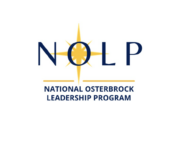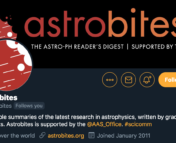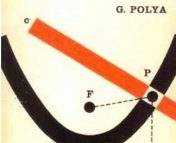Authors: Elizabeth R. Stanway
First author’s institution: University of Warwick
Status: Open access
If you ask an astronomer what got them into space science, I’d bet the answer is either stargazing as a kid or consuming science fiction. I know that’s true for me at least — I became an exoplanet astronomer since I wanted to explore other planets like in the sci-fi books I read! Astronomers even bake sci-fi references into our work, with software like SAOImage DS9 (named after the Star Trek series) and Python packages named “BATMAN” or “SPIDERMAN.” Although there’s evidence that sci-fi helps to inspire the general public’s interest in science and shape perceptions of the field, no one has really looked into how sci-fi affected professional scientists — until now!
Today’s paper explores how astronomers in the United Kingdom engage with sci-fi and how it affected their career paths, trying to answer the following questions: does sci-fi really inspire people to become astronomers, and are astronomers really all big sci-fi fans?
So, Star Wars, Star Trek, or Stargate?
The author of this paper completed two surveys: one smaller case study in the University of Warwick’s Astronomy & Astrophysics cluster and one larger anonymous survey at the UK National Astronomy Meeting (NAM 2022).
In the case study, the author posted an informal poll in the group’s Slack workspace, asking the question: “Are you a fan of, or have you been inspired by any of the following Science Fiction?
- Star Trek
- Star Wars
- Doctor Who
- Other Sci-fi (feel free to specify in comment)
- Not a science fiction fan”
Over 80% of respondents in the informal poll identified as a fan of at least some kind of sci-fi. (And if you’re wondering, Star Wars beat Star Trek, and Stargate wasn’t even mentioned in the paper — I know, it’s upsetting!)
At NAM 2022, the author included a poll (see image below) on her poster about science fiction’s portrayal of different disasters in the Universe. This expanded astronomers’ engagement into two axes: influence and interest. Conference attendees were provided stickers to place on the poster to indicate whether they “loved” or “loathed” sci-fi, and how much it influenced their career choice.
From the Asymptotic Sci-Fi Branch to the Astronomers’ Main Sequence
The author digitized the results from the poster and broke it up into five categories (illustrated below):
- the asymptotic sci-fi lovers branch
- the astronomers’ main sequence
- the weakly interacting cloud
- the science fiction haters’ cooling track
- D clump
Clumps #1 and #2 show a large population of astronomers who both love sci-fi and were influenced by it. About ¼ of responses fall in Clump #3, the weakly interacting cloud, who seem to be more casual sci-fi consumers. A small number of respondents disliked sci-fi, yet some of them (the D clump, #5), still claim to be influenced by it. This seems to be a curious response, and would be interesting to investigate further! It’s also worth noting that there are astronomers who dislike sci-fi, and they may feel alienated by assumptions that all astronomers love it.
Overall, the NAM 2022 survey showed that about 93% of UK astronomers liked sci-fi, and 69% were influenced by it in their career choices. Although this was an unsupervised and anonymous survey, it is an interesting first step in investigating sci-fi’s relationship to inspiring new generations of astronomers!
Disclaimer: “Beyond astro-ph” articles are not necessarily intended to be representative of the views of the entire Astrobites collaboration, nor do they represent the views of the AAS or all astronomers. While AAS supports Astrobites, Astrobites is editorially independent and content that appears on Astrobites is not reviewed or approved by the AAS.
Astrobite edited by: Roel Lefever
Featured image credit: Stargate





I’m just really curious about that one sticker below the bottom of the chart… I’d really like to hear from whoever put that there…